SUMMARY
This is AI generated summarization, which may have errors. For context, always refer to the full article.
![[OPINION] The CHR Report: A climate justice victory](https://www.rappler.com/tachyon/2022/05/tl-chr-climate.jpg)
Seven years since its filing, the Commission on Human Rights (CHR) finally released its report on the National Inquiry on Climate Change filed by petitioners to urge the Commission to look into whether the world’s largest investor-owned fossil fuel and cement producers (“Carbon Majors”) can be held liable for human rights violations resulting from the impacts of climate change.
The Petitioners, composed of climate activists, typhoon survivors, and farmers and fisherfolk, among others, filed the Petition before the CHR as an attempt to frame climate change as a human rights issue, and was the first petition of such kind to be accepted by a National Human Rights Institution (NHRI).
Several hearings, submissions, and pieces of evidence later, the Commission on Human Rights published its 160-paged report, which lays down in detail two very important things: first, that climate change is a human rights issue; and second, that Carbon Majors can be held liable for their human rights violations. The Report can also be cited as precedent in subsequent court cases everywhere in the world.
While belatedly released, the Report is a big win for the environmental and climate justice movement, especially as we strengthen our resolve to combat the climate crisis, here in the Philippines and everywhere else in the world.
Climate change is a human rights issue
A battlecry by many climate activists and environmental workers for years now, it is a victory to witness human rights institutions acknowledge this important – and fundamental – truth. Acknowledging that climate change is a human rights issue has many consequences, including the fact that the way to fight the climate crisis will involve a deep resolve to simultaneously protect and promote human rights.
Loss and damage
Perhaps one of the most invaluable contributions of the Report was its discussion on loss and damage resulting from climate change, i.e. the consequences associated with the adverse effects of climate change, including slow and rapid-onset events. This also includes non-economic loss, such as, but not limited to, human health, lives, and loss of cultural identity, among others.
The CHR noted the many impacts of climate change on the rights of people, including, but not limited to, their rights to life, health (both physical and mental), food security, water and sanitation, livelihood, adequate housing, and the right to a safe, clean, healthy, and sustainable environment. Laudably, the Report mentioned rights to preservation of culture, noting that “climate change particularly impacts cultures closely connected with the natural environment,” and using rituals and cultures of indigenous peoples as examples.
Further, it talked about climate change effects on equality and non-discrimination, indicating that “people who are already socially, economically, or otherwise marginalized are the most vulnerable to its impacts due to their high dependence on natural resources, heightened exposure to climate change impacts, and lack of resources to adapt.”
Lastly, the Report discussed the impact of climate change to the right of future generations and intergenerational equity, noting that the lack of urgency in the fight against the climate crisis unfairly shifts the burden unto future generations.
Obligations of States
Next, the Report talked about the obligations of States, providing that a balance between environmental security and other legitimate societal interests “does not result in unjustified violations of human rights.”
Interestingly, and perhaps a novel contribution by the CHR, the Report noted that “[a] State’s legal obligation to respond to climate change is neither directly related nor proportional to its contribution to climate change.” This means that, for instance, a country like the Philippines, which contributes only to 0.3% of global greenhouse gas emissions, has the legal obligation to make strides to respond to, and fight against, climate change.
Another novel discussion was that on attribution science. A difficulty in climate litigation is the concept of attribution, which creates a one-to-one correspondence between the emission and the impact. To that end, the CHR said thus: “[t]hat science cannot yet establish a high degree of accuracy the causal relationship between GHGs and specific climate-related effects on particular parties is problematic only in establishing legal liability for the purpose of claiming awards for damages from specific parties, which is a matter for the courts to determine.”
Liabilities of Carbon Majors
Perhaps one of the most important, if not the main highlight, of the CHR Report was the discussion on the liability of Carbon Majors – fossil fuel and agriculture companies among others – in the context of climate change. It used a study that linked the emissions of Carbon Majors to observed rise in atmospheric carbon dioxide and an increase in global average temperature, among others.
To discuss further their liabilities, the CHR noted that these Carbon Majors had early awareness, notice, or knowledge of the adverse effects of their products. Further, that these Carbon Majors engaged in willful obfuscation and obstruction (including the coal industry’s “history of misleading the public about climate science” and the Carbon Majors’ efforts to sow “doubt and misinformation about climate change”), which, according to the CHR, “prejudiced the right of the public to make informed decisions about their products, concealing that their products posed significant harms to the environment and the climate system.” The CHR concluded that paragraph strongly by saying that “[a]ll these have served to obfuscate scientific findings and delay meaningful environment and climate action.”
The CHR also found that climate denialism, or the denial, dismissal, or doubt that significant climate change is occurring and that much of it is anthropogenic, continues to persist to this day, and could also be a source of liability.
The CHR said that these Carbon Majors, especially those within Philippine jurisdiction, may be compelled to undertake human rights due diligence and to provide remediation.
CHR’s recommendations
The CHR ended its groundbreaking Report with a number of recommendations. Despite the successes of the Paris Agreement, which had, for one of its main goals the limiting of temperature increase to 2 degrees Celsius, preferably 1.5 degrees, compared to pre-industrial levels, the CHR echoed the Intergovernmental Panel on Climate Change (IPCC)’s report that even if all the current Nationally Determined Contributions (NDCs) are implemented, “the world will still face a 2.7-degree increase in temperature by the end of the century.” Therefore, there is a need for “maximum ambition from all countries on all fronts.”
The Commission further opined “that if the international community proceeds with a business-as-usual approach to climate change, the Filipino experience of deprivation of fundamental rights will become the norm in many nations, or even worse.”
Its recommendations to governments focused on climate justice, discouraging the dependence on fossil fuels, and ensuring that all persons have the necessary capacity to adapt to climate change, among others.
Notably, it also recommended governments, specifically developed nations, to fulfill their climate finance commitments and device new mechanisms for loss and damage from climate-related events, stressing the need for “a separate finance mechanism for loss and damage xxx to assist developing countries” in addition to climate financing for mitigation and adaptation, a call that environmental workers, particularly from climate-vulnerable countries, have been making. The fact that this is part of the recommendations, therefore, is a big victory for climate justice.
Another notable recommendation to governments was to support and provide adequate legal protection to environmental defenders and climate activists, and States are encouraged to, for instance, (a) stop labeling climate advocates, environmental groups, and defenders as enemies of the State, and other related actions, based on their advocacy for climate action, and (b) prohibit vilification, surveillance, red-tagging, threats of retaliation, and other activities that limit the freedom of climate activist and environmental groups.
It also, again, a novel contribution, recommended that governments include the military in carbon accounting when developing their NDC.
Where do we go from here?
The CHR Report is the first of its kind, and its contribution to the climate change discussion, particularly that on loss and damage, is invaluable. It provided novel recommendations, put a lot of focus on climate justice and just transition, and laid down one by one and in no uncertain terms – rights, obligations, and liabilities.
It can now serve as precedent, and can be cited by courts all over the world as we begin to witness a surge in climate litigation. We expect that in the coming months and years, more people will come forward to file cases against Carbon Majors, using as their cause of action the protection of their human rights.
The climate crisis is now no longer a thing of the future, it is now within our midst, and scientists have been warning us that the window for climate action is rapidly closing.
However, all is not lost. We just need to act urgently, decisively, and with resolve. It is our hope that this Report, and the recommendations within, be a great step in that direction. – Rappler.com
Tony La Viña is the Associate Director for climate policy and International relations of Manila Observatory. He also teaches law and is former dean of the Ateneo School of Government.
Joy Reyes is a human rights and climate justice lawyer affiliated with the Manila Observatory.
Yla Paras is a policy expert on regulation and road safety affiliated with the Manila Observatory.
Add a comment
How does this make you feel?
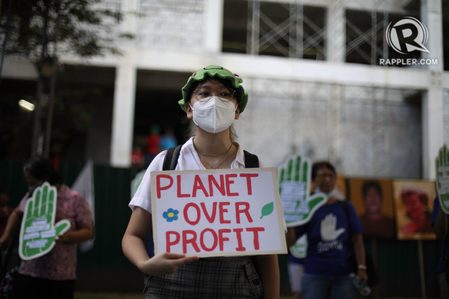
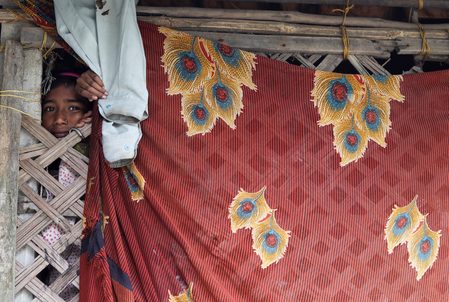
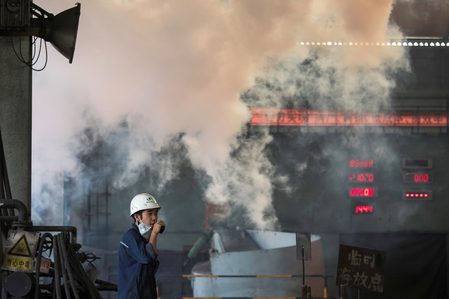
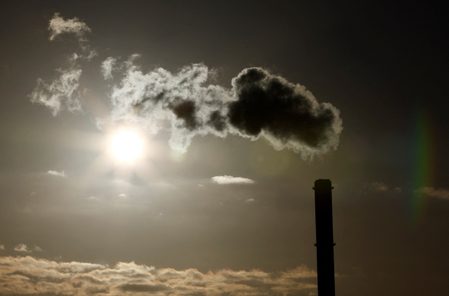


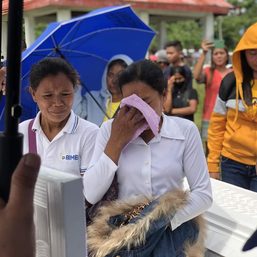

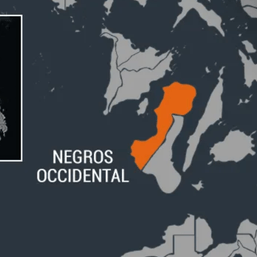
There are no comments yet. Add your comment to start the conversation.